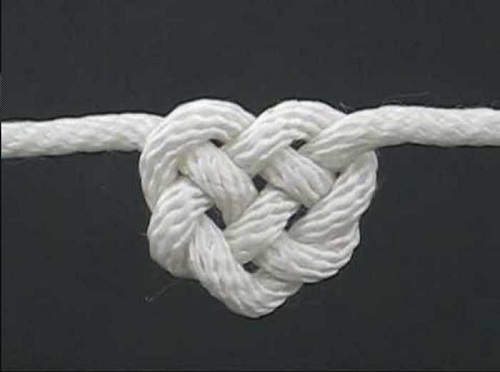FWP:
SETS == WORDPLAY
Isn't this a classy mushairah verse? And it's full of wordplay which is also, as so often, meaning-play. It's lucky for the translator that we have the English word 'attraction', which can do many of the same tricks that ja;zb can: it can include the mechanical action of a magnet, and (by an obvious extension) the effects of an 'attractive' person or quality on one who is 'attracted'. The senses of 'drawing, pulling' [khe;nchnaa], and a number of the meanings of kashaakash , work perfectly with this semantic range.
The final two words before the refrain are the excellently multivalent kashaakash (full of negative senses, but with some positive ones as well; see the definition above) and then the crucial rhyme-word darmiyaa;N , which suddenly drives home the point: that it takes two to tango, that a (desirable or undesirable) kashaakash exists not in the beloved's heart or in the lover's heart alone, but in the space between them. Between them the air is charged with electricity-- or with magnetic attraction (or repulsion). And the lover claims that this whole kashaakash is not his fault, but hers.
But the possibilities for the ja;zb , the 'attraction', seem to be enjoyably complex. The beloved's beauty might 'attract' the lover. The lover's passionate devotion might 'attract' the beloved. What might be the results?
=The lover's passion draws the beloved toward him, but she draws herself back-- so the tension is her fault. (This is Bekhud Mohani's reading.)
=When the lover seeks to approach the beloved, she draws herself back-- so the tension is her fault. This is the reading proposed by Dalpat Rajpurohit (Oct. 2017) and Tahira Naqvi and Mahmood Piracha (Nov. 2020).
=The beloved's beauty draws the lover toward her-- he is as helpless as an iron filing near a magnet, so the situation is her fault. This reading requires us to read apne ko in the sense of apnii :taraf , which is a bit dicey of course. But I find that this reading looms so large that it's hard to avoid seeing it as a possibility.
And of course, the very complaint itself is also a part of
the constant kashaakash --whatever form(s) it may take--
between the lover and the beloved. The kashaakash caused
by the (one-sided or mutual) 'attraction' produces the complaint, and the complaint
is part of the delightful mischievousness and perversity [sho;xii]
that only increases the 'attraction' and thus prolongs the kashaakash
.

Nazm:
That is, the attraction of the heart draws me this way; you draw me that way; this is the cause of tension. (137)
== Nazm page 137